Warsaw, Poland
CNN
—
The front door to the Martynowska residence is a point of no return. Every week, as Karolina prepares to cross it, she steels herself.
“Sometimes it’s exciting,” she says. “It’s a mind-bending exercise. But I always have to equip myself. With patience.”
The Martynowskas – Stella, 69, and her two children Patrycja and Karolina, both in their 40s – are the quintessential Polish family unit. They gather at least once a week for pierogi or chicken soup. Patrycja lives in the same building as her mother, and Katarina is just a few doors down.
Tonight, the matriarch – Stella’s 97-year-old mother, Stanisława – has joined proceedings, watching over her family silently from the corner of the room, save for the occasional murmur of approval or disagreement.
But when the generations meet these days, the conversation turns bitter, animated, emotional. And it doesn’t take long. “We always end up talking about politics,” Karolina says with an exaggerated weariness. “Mum is ready to go within seconds.”
“She provokes us,” adds Patrycja dryly, as the family Yorkshire terrier bounces at her feet. “She wants to convert us,” says Karolina. It can get loud, and feelings can be hurt.
The Martynowskas’ tensions are Poland’s tensions. Like millions of families, they are ruptured along generational lines, and trapped on either side of the country’s gaping societal chasm.
Poland is splitting in two. An increasingly toxic politics has polluted kitchens and dining rooms in every region of the country. Poles seem to live in separate realities, their worldviews and anxieties determined by where they get their news.
And a vicious election campaign, which may conclude on Sunday without a definitive result, has hardened public discourse to the point of political warfare.
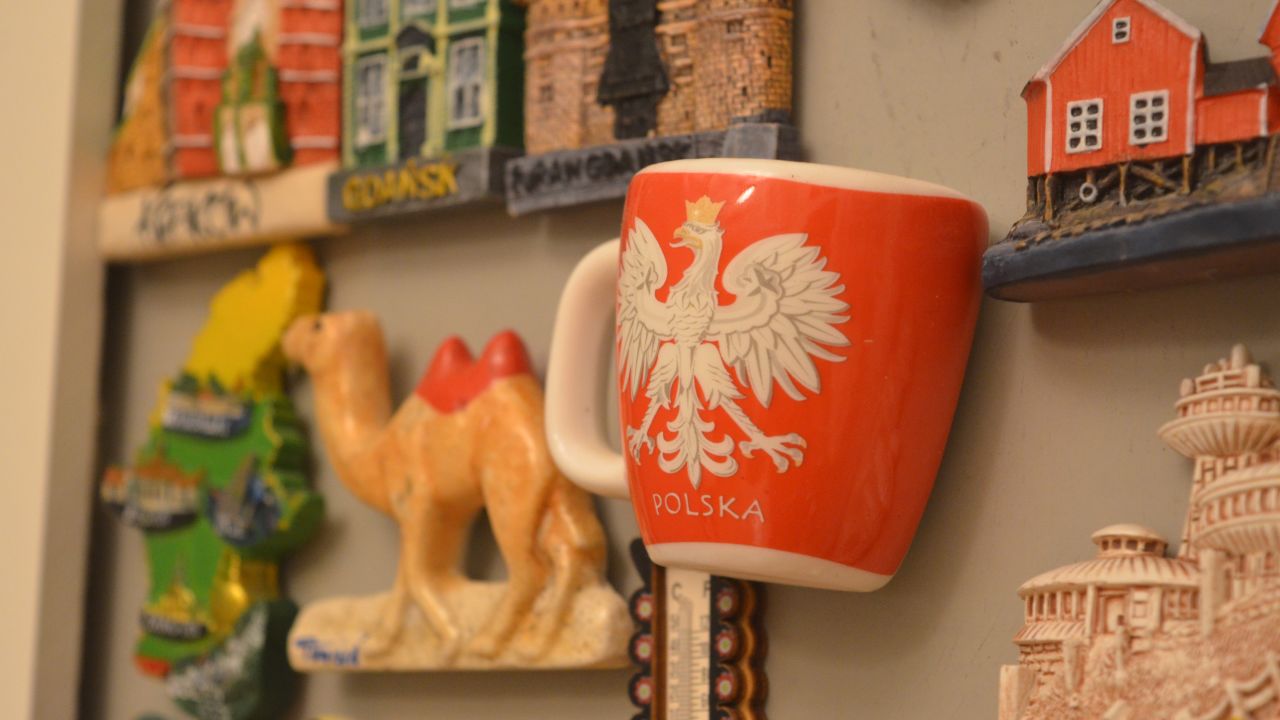
The government’s sharp illiberal turn on civil rights for women, LGBTQ+ people and minorities, and a drastic overhaul of the judiciary and public media that brought both under increased state control, have appalled Western nations that once looked on Poland as the model student of the free market democracies which emerged from the Soviet bloc.
But they have delighted conservative Poles who stringently oppose the adoption of what they see as Western European social and cultural values, which PiS describe as a threat to the country’s deep-rooted Catholic heritage.
“She used to be a very open-minded person,” Karolina says of her mother, who sits three feet away, across the trenches of the dinner table. But the negativity of the country’s politics – arguments echoed each hour on state TV, which is almost always turned on – has worn her down, she says.
“I didn’t hear what you said,” Stella quips in response. “But I disagree.”

For eight years, Law and Justice (known by its Polish acronym, PiS) has rallied huge swathes of the population with appeals to a fierce Polish national identity, an emphasis on national security, and a generous social welfare program for parents and pensioners.
“The most important values for me are God, honor, and motherland,” Stella tells CNN in her home on the outskirts of Warsaw that evening. “These are the values that are very important to PiS. These values are under threat.”
But the party has also dramatically shifted the guardrails of the Polish state, bringing the judiciary, public media and cultural bodies firmly under its control. The efforts sparked years of legal challenges, protests and international confrontations – and hardened the Polish public. If you ask a Pole their view on the government these days, there’s rarely much ambiguity; they’re either with them, or against them.
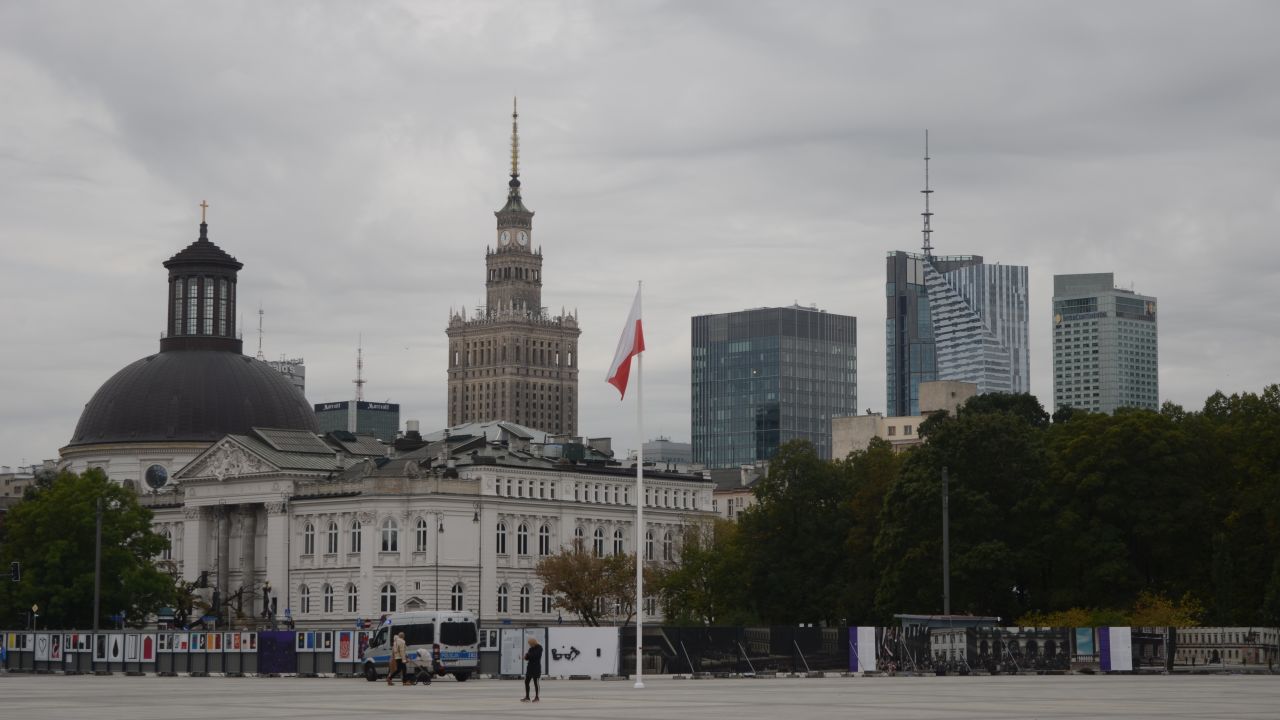
“Law and Justice are trustworthy,” Stella says. “That’s not lost in translation; she actually said that,” Karolina shoots back. Patrycja’s head drops into her hand. “Bullsh*t,” she mutters.
But there is something – perhaps just one thing – that the Martynowskas agree on: Political divisions never used to be this bad.
Public television, which Stella admits is always on in her home, is a major culprit. State-run networks have become essentially a government mouthpiece in recent years; networks bear resemblance to those of Hungary and even Russia, where the successes of the ruling party are touted by anchors ad nauseum. “It’s a different world,” says Karolina. “It’s a fairytale! There’s no inflation, there’s no problems, there is only success.”
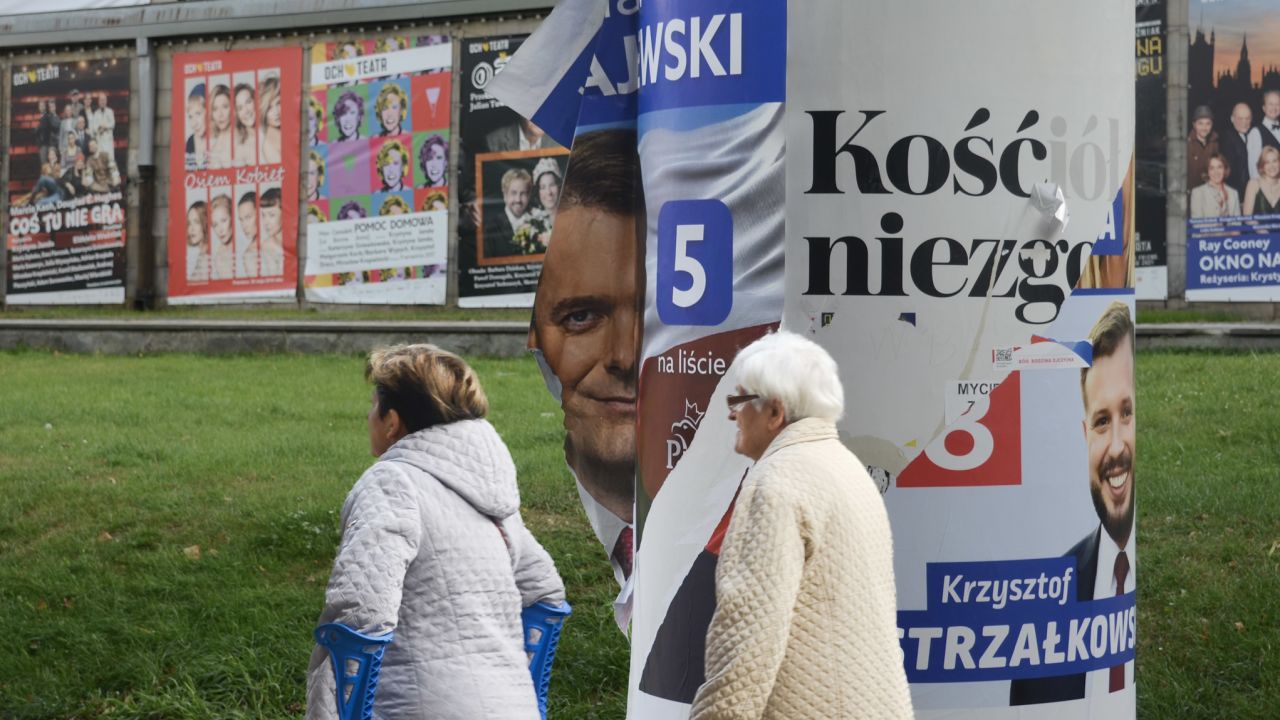
“This is how illiberal democracies are created,” Piotr Buras, head of the European Council on Foreign Relations in Warsaw, tells CNN of PiS’ divisive reforms. “On the surface, it is a democratic process – but there are so many violations of the constitution.”
Women’s and LGBTQ+ rights have meanwhile been heavily restricted; it is harder now to access abortions in Poland than virtually anywhere in Western Europe, and many regions have declared themselves “LGBT-free zones,” to the ire of Brussels. Stella cheers these changes; like many older Poles, she wants to see Catholic teaching form the basis of the country’s laws. But they are deepening a divide between the state and its younger citizens, some of whom say they may leave the country if PiS wins another term. “PiS is against women,” says Patrycja.
Throughout all these changes, a deep-rooted polarization has taken hold. And now, the ongoing election has brought the country close to breaking point. PiS officials and state television have painted Donald Tusk, the opposition leader and former prime minister, as a patsy of Brussels and Berlin. In return, Tusk and his allies in the Civic Coalition (KO) have described PiS’ rule in deeply ominous terms. Lech Walesa, Poland’s first democratically elected president who is campaigning for Tusk, recently said the PiS chairman, Jarosław Kaczyński, should be imprisoned if the ruling party loses Sunday’s vote.
Kaczyński, Poland’s de facto leader, said in an August rally that Tusk was the “personification of pure evil” and should be “morally exterminated.”
“It’s really apocalyptic language,” Jacek Kucharczyk, the president of the executive board at Warsaw’s Institute of Public Affairs, told CNN of the election rhetoric.
Polls put PiS ahead of Tusk’s Civic Coalition, but by a narrow margin, suggesting it’s unlikely that any group will win an outright majority in the Sejm – Poland’s lower house. That outcome would fire the starting gun on several days of post-vote negotiations, with the leading party attempting to find a coalition that would allow it to govern.
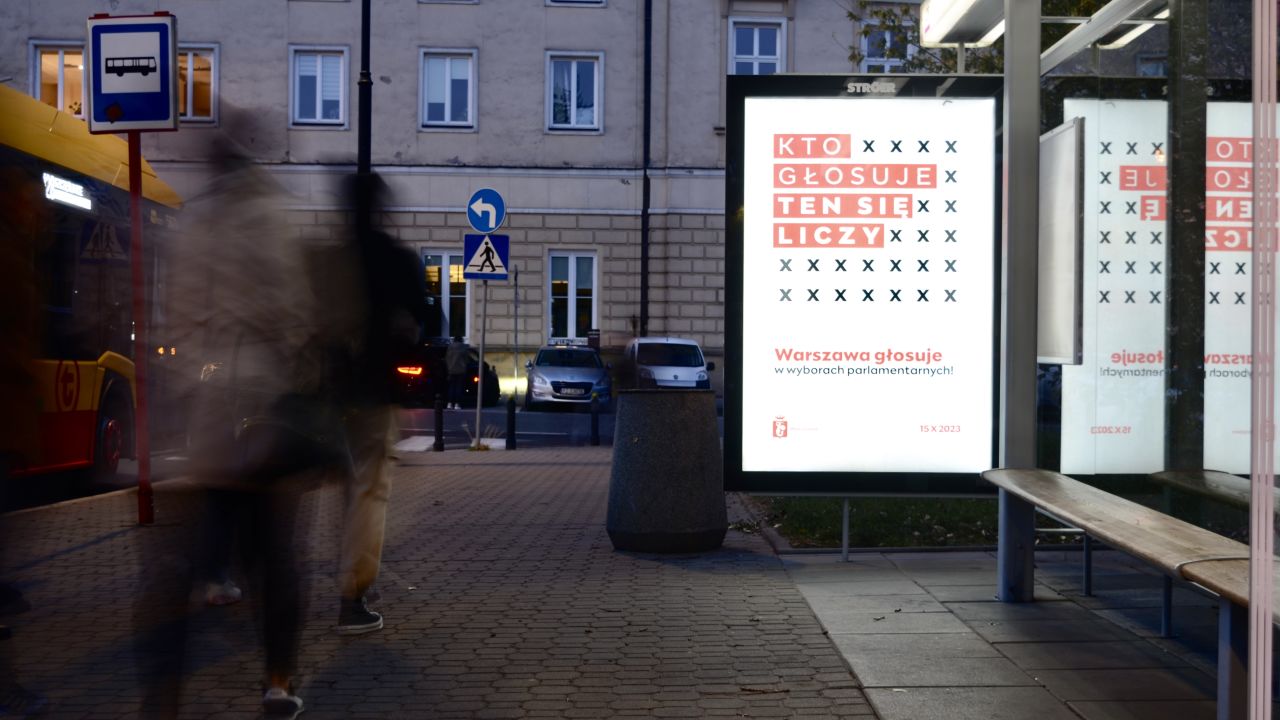
Whoever wins Sunday’s election, the arguments, hyperbole and doom-mongering that have become hallmarks of Polish politics seem destined to continue.
“This would be the end of the world if PiS loses,” says Ewa Majewska, a 70-year-old PiS supporter, on the outskirts of Lublin, eastern Poland. “I’m voting for PiS and I’m not going to change my mind, because the others are communists – they want Poland to be under a German government.”
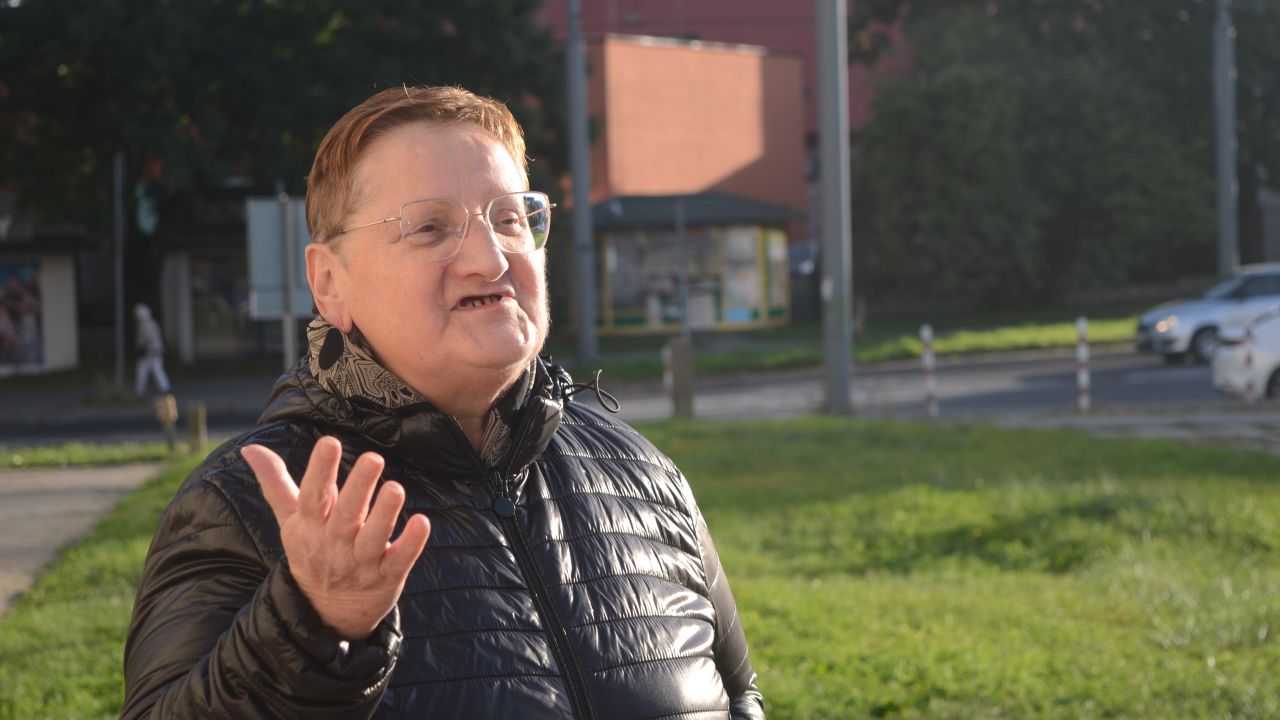
A few miles away, in the center of the city, Igor Konior is trying to change minds. The 21-year-old is handing out leaflets for the Tusk-led opposition coalition in a busy square, brushing off dismissive glances and seizing the moment when a passerby slows to a saunter.
But changing minds is not an easy job in Poland, as Konior discovers whenever he goes home.
“I have a problem with my grandparents,” he says. “They are watching public television, and they’re saying exactly the same thing that public television is saying.”
He and his grandparents live in “totally different worlds,” he adds. “My friends are thinking about leaving Poland if PiS wins again. They want to live in the normal European Union, not the radical one.”
But Konior is here for the long haul. “I was born here, and I want to stay here, and fight for normality.”
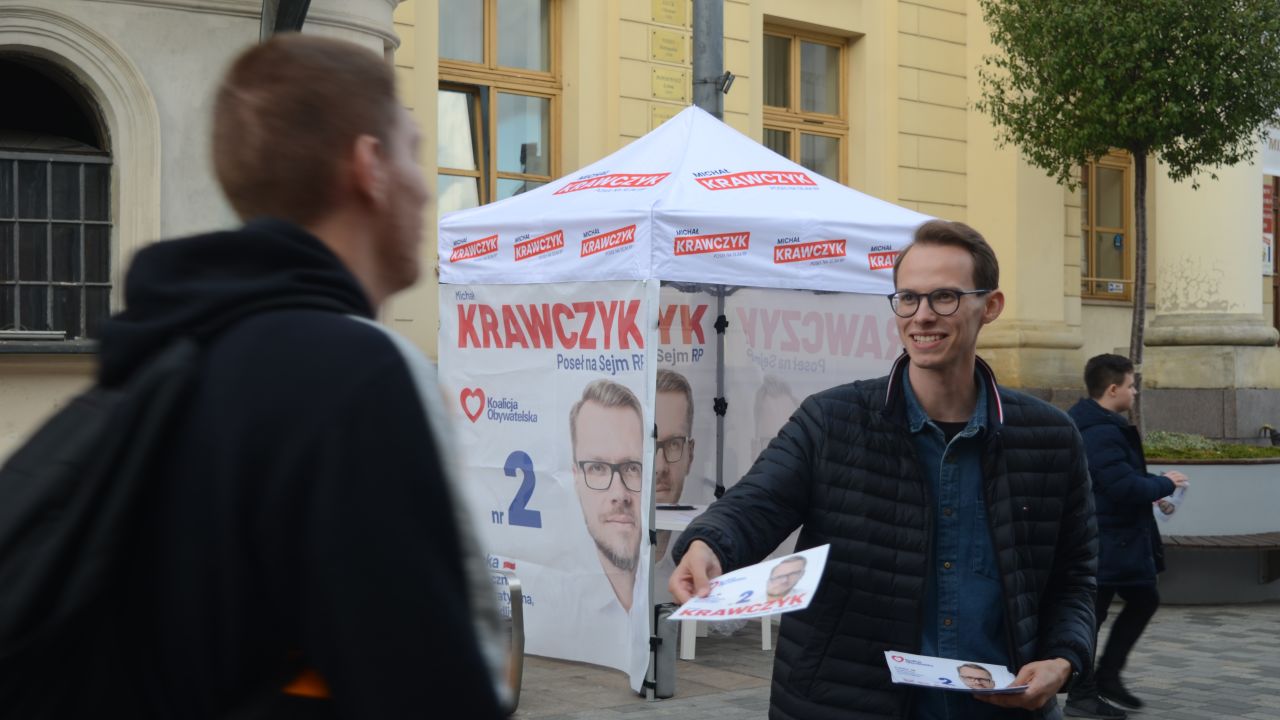
Polish politics has felt like a fight, rather than a debate, for some time. It is difficult to envisage a path forward that untangles a deep-rooted transformation of the country’s institutions while bridging Poland’s cavernous divisions.
“I have never trusted Tusk,” says Wanda, a 75-year-old PiS supporter in Lublin. “I can’t really even look at him… I’m trying to avoid the screen, or I turn off the television” when he appears, she adds. “I don’t want to hear him.”
Lucyna Botin, an 82-year-old who will be voting to remove PiS from power in Lublin on Sunday, feels herself an outlier. “In my age group, people don’t share my opinions. So I can’t talk with them,” she says.
Aleksandra Lukasiewicz, 30, felt her country changing softly, and slowly – and then, all at once.
“Every week, sometimes every second day, they changed some laws about what you can and can’t do,” she said, describing the first years of rule by PiS.
Then, in central Warsaw in 2020, Lukasiewicz saw a truck transporting homophobia through the streets of the capital. The vehicle carried a billboard comparing homosexuality to child sex abuse. “Stop Pedophilia,” a slogan read, above a crossed-out Pride flag.
For Lukasiewicz, the campaign – organized by an ultra-conservative group – was the culmination of years of intensifying anti-LGBT rhetoric emanating from and encouraged by the country’s government. Officials have called LGBTQ+ people abnormal, and warned of the dangers of an LGBT “ideology” that “threatens the Polish state.”
Months later, Lukasiewicz had left the country behind. “It’s now or never,” she recalls telling her girlfriend. “We’re leaving.”
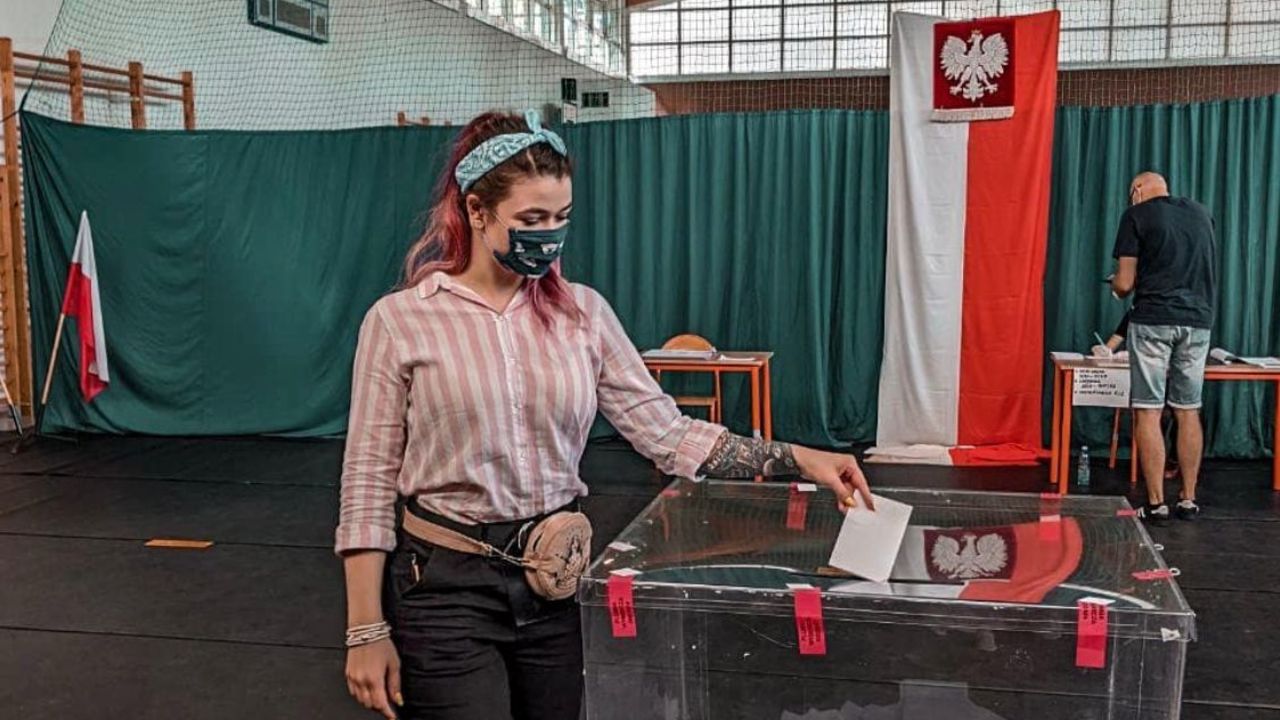
The pair now live in Rotterdam, and they’re engaged – a step that would not be possible back home. Lukasiewicz, who spoke to CNN by phone from Rotterdam, wants to return, one day. “But after PiS got into power, the public debate went into a very bad place … if (they) win again, there’s going to be nothing left of Poland.”
An exodus of Poles who despise their country’s direction has been underway for eight years, but it threatens to accelerate if PiS win a third term. Talk of leaving is rife; when speaking to an opposition voter, conversation often – and quickly – turns to a shortlist of European countries to which they’ve discussed moving.
“A lot of people would decide to emigrate, most probably myself as well,” says Michal, 68, in outer Warsaw. “Eight years ago, Poland was part of Western Europe. I don’t want to go towards the East.”
“It’s all the little things that are piling up on top of each other,” adds Jędrzej Kasprzyk, a student who is also making plans to move to Western Europe from his city of Łódź, central Poland. “I don’t know how I’ll be able to continue (in Poland) in the future.”

The Martynowskas are determined to stay in the country where they have had roots for over a century. But they are bitterly torn over its past, its present, and its future.
“They were born in good times,” Stella says, gesturing to her children. “I was born after the war; I was living with six people in one room, without a toilet.”
Discussion flits from one controversial PiS policy to another. Fears and anxieties for a post-election Poland are shared. “You see, my mother is red (with) emotion,” Patrycja says.
Then there’s a rare break in conversation. “The world will keep spinning” the day after the election, Karolina concedes with atypical groundedness.
But for her, and for millions of Poles, something has changed since Poland’s first decades of freedom. “Being European, being part of a bigger society, was lost,” she says.